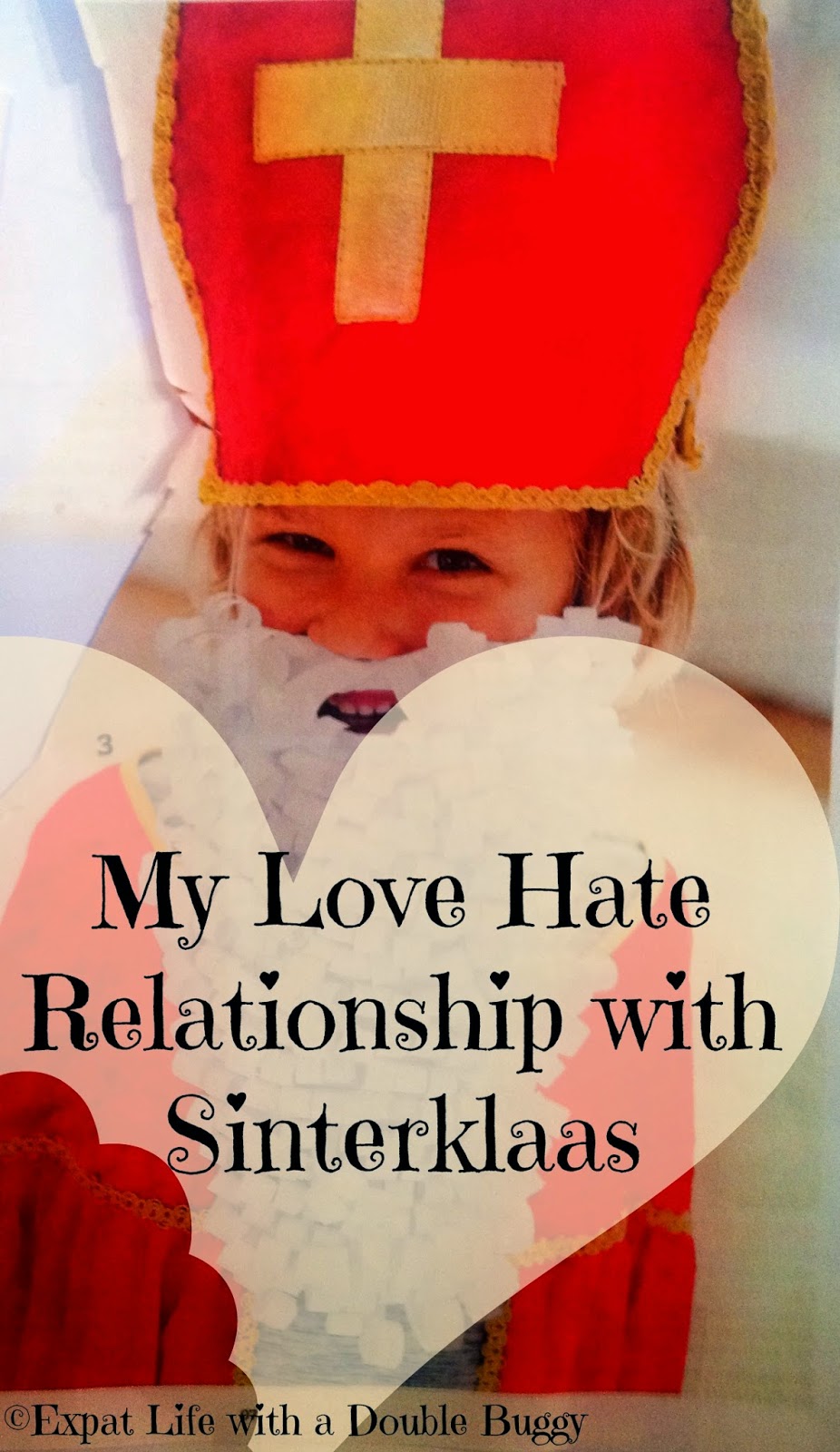Then one day, when my eldest son was a couple of years old, Sinterklaas and his staf suddenly invaded my home. He came in uninvited and practically put his feet up on my sofa for weeks on end. And he's done it every year since.
A first I didn't have feelings for him one way or another. Then another of my children reached "I get Sinterklaas" age in my home and my eldest was fully initiated in primary school.
What that means, for those of you whose children are not yet of school going age, is this:
- Sinterklaasjournaal every day. Every sodding day. Every day here at home and in school. The boys insisted on it - and we, as caring, loving parents, also had to know what was going on so we could throw ourselves in to the storyline (read: wind our own kids up by being in cahoots with the entire Dutch nation with one disaster or another to befall Sinterklaas, his boat, his horse or, horror of horrors, the presents).
- A house full of Sinterklaas knutsels. The first year when my son brought home a Piet muts he'd made in the peuterspeelzaal I cooed and ahhhed, like all good mothers do. Six years later and more homemade Piet and Sinterklaas hats, drawings, sacks and paper shoes than any sane person would know what to do with I'm done. Spare me. My house is one big cluttered paper mess. The drawings are beautiful, everything they have made has been lovingly put together and crafted and oh, my boys are so proud. It melts my heart. But stop already.

- A house full of little people who are literally bouncing off and climbing up the walls in excitement. Not just for a day. Not even a week. But weeks. Plural. The moment the man in red arrives on Dutch shores the craziness begins. My house and every Dutch school classroom turns in to a sugar induced lunatic asylum with kids bouncing off each other counting down the days until they get their presents, and Sinterklaas clears off back to Spain leaving us to clear up his mess.
- It means singing. A lot of singing. Now, I'm all for a good sing song. I'll croon away with the best of them. But Sinterklaas songs get tedious sang at the top of a child's voice for weeks on end. There are many Sinterklaas songs but there are only three that stick in any child's mind. Sinterklaas bloody kapoentje. Zwarte Piet ging uit fietsen and Sinterklaas is jarig, zet hem op de pot. The last song is sung in a fit of uncontrollable giggles. And the worst thing is that whilst I am trying to ingrain beautiful Christmas carols in to my sons once Sinterklaas has toddled back off to Spain, they are still singing Sinterklaas bloody kapoentje. It's around May when they finally stop.
So that's how the Sinterklaas celebration looks when your children start primary school. Seriously, count your blessings if your offspring is yet to turn four.
On the other hand….. who could not be charmed by the excitement of three little boys whose whole world for a couple of weeks a year revolves around a fantasy? The enthusiasm they have for Sinterklaas and his band of helpers is like nothing else. When my four year old is telling me what happened in the latest Sinterklaasjournaal he is literally jumping up and down whilst talking. Who can't love the innocence of uncontainable excitement? When do we, as adults, ever get to experience such enthusiasm?
The thrill of pakjesavond for children is immeasurable, waiting for a knock on the door, a gloved hand around the door throwing sweets at them and then….. the grand finale, the moment they have waited weeks for - the sack of presents left in the hall. And it's not about what is in those sacks left behind. It's the magic that those many sacks scattered across the Netherlands represent. A magic that only a child gets. Only a child can experience. That feeling of being so excited you feel like you could burst. And that's what I love about Sinterklaas. That's why I contain my feelings of resentment when he bursts in to my home in November, puts his feet up on my sofa and makes himself cosy until the 6th of December. For my children, who after all is what Sinterklaas is all about.
So, however and wherever you are celebrating pakjesavond tomorrow enjoy your evening. Enjoy the moments of joy and excitement of your children, enjoy the family time - but know that I'll be the first in line to wave the good man off on Saturday morning……..




















